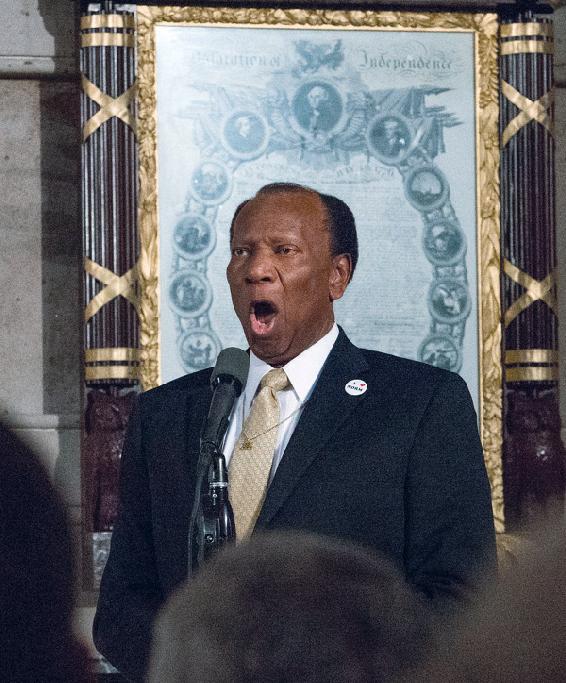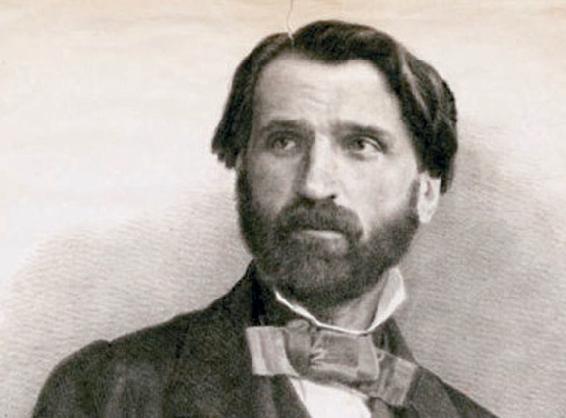INTERVIEW
DR. SIMON ESTES
Uplifting and Educating Young Minds
Through Classical Music
June 2017
Video of this interview
On June 4, Lynn Yen, the Executive Director of the Foundation for the Revival of Classical Culture, interviewed the world renowned artist Simon Estes. On June 29, both Mr. Estes and Ms. Yen will be participating in the “Tribute to Sylvia Olden Lee” at Carnegie Hall in New York City. This event, organized as a Centennial Celebration Concert in honor of Sylvia Olden Lee, is sponsored by the Foundation for the Revival of Classical Culture, in collaboration with the Schiller Institute and the Harlem Opera Theater. The website for the event may be found here.
Lynn Yen: Hello, my name is Lynn Yen. I’m the Executive Director of the Foundation for the Revival of Classical Culture. I’m here with Dr. Simon Estes, who is one of the most renowned opera singers in the world. He has a career spanning more than five decades; in fact he’s going into the 58th year of his musical career. He’s sung in over eighty-four opera houses in the world; he has sung in front of more than one hundred orchestras, six presidents, the pope, and other international figures, including Presidents Johnson, Nixon, Carter, Clinton and Obama, as well as Desmond Tutu and Nelson Mandela, on and on and on. We will be having a concert, featuring Dr. Estes, a concert in tribute to a great vocal coach, Sylvia Olden Lee, on June 29, and the concert will involve an audience, we hope, of more than one thousand young people from all over New York City.
Dr. Estes, I have a few questions for you regarding education. The first is, what do you think about education for youth in classical music, and how did you become interested in it? I know you have a foundation…

US Department of Agriculture Dr. Simon Estes |
Dr. Simon Estes: Right. It is vitally important that young people are introduced to classical music at a very young age. Not only is it something that will motivate the talents that many of them have that they don’t know they have; but also we know that when children are introduced at a young age to classical music, that generally speaking, they do better academically in school and they are involved in far fewer problems of juvenile delinquency. So it is vitally important for young people to get involved in classical music.
Lynn Yen: Your first vocal teacher was quite an amazing individual.
Dr. Estes: He was. He is still alive; he’s 90 years of age, Charles Kellis, and I believe God sent him to the University of Iowa in 1961 to discover me. That’s how important I tell young people the teachers are, in many different other areas. Teachers are there because they want to educate us; and this man knew about classical music and opera, and he said, ‘you have a voice to sing opera.’ I had never heard of opera in my life. So without this teacher (young people remember that!), teachers are vitally important and so is education.
Yen: You were 18 or 20?
Estes: No! The first time I started working with Mr. Kellis I was 23.
Yen: Wow!
Estes: That is the first time I was ever introduced to classical music.
Yen: Amazing; that’s wonderful! My second question is what is the difference between classical music in Europe and the United States, or the United States compared to other countries?
Estes: First of all, most classical music, even pre- Baroque, then Baroque or Classical periods, then the Romantic period, most of this music was composed in European countries by Europeans, so they have had a longer history of this type of music, especially in terms of performing it, than the United States, because so many of those composers were over four hundred years ago, and the United States is very young. So it has been vitally important in the field of classical music.
Yen: Right, exactly. I know you told us, and Sylvia Olden Lee’s grandfather was born a slave on the Olden plantation, escaped to the North and joined the Union Army, and your grandfather was also born a slave. And you said there’s a sales paper of $500?
Estes: My grandfather was sold for $500, born in Virginia in 1837…
Yen: That’s amazing.
Estes: ...and here I am, somewhat free and an opera singer.
Yen: And you’ve sung in the major opera houses, all the major opera houses throughout world. What has provided you with the inspiration to do what you do, and have a life so very different and so vastly…
Estes: I have to say, it really goes back to Charles Kellis, the man who introduced me to classical music. I knew nothing about opera; he loaned me recordings of famous opera singers and a symphonic recording also, so that I would have experience with this type of music, which I had not had any exposure to. That’s why I think it is vitally important that young people, at a young age, get exposure to classical music, because I think inside of probably 90 percent of them they will love this type of music, and it will be healthy for them.
Yen: That’s beautiful. That leads to the question, what do you think about the capability of classical music to provide emotional education for people, especially when it comes to the issues of rage and violence which are often a big problem in the United States today.
Estes: I think if young people go to more music appreciation courses—I know a lot of schools have dropped that from the curriculum—but I think they need to have exposure to this type of music, to sing and to play classical instruments. And they have to be very careful at which age to begin. If they want to be a pianist or a violinist, for example, they must start at a very young age: three, four, five years. If you’re going to sing opera you have to be very, very careful, because your vocal chords are still developing in the body. So I believe Sylvia always wanted young people to have patience, especially if they wanted to sing classical music.
 Public Domain Giuseppe Verdi |
Yen: Right. She had this thing called Saving Young Lyric Voices In Advance, Project SYLVIA, and we intend to ensure the proper technique, bel canto, and at the proper pitch, the Verdi pitch, so that it can be done right.
Estes: Because Verdi knew what he wanted!
Yen: Verdi knew what he was doing!
Estes: That’s right!
Yen: Do you have any suggestions as to how musical education should proceed in the United States today, and also what do you think about the need to create a new audience for classical music, because we all know it’s getting to be more older people in the audience.
Estes: I think it needs to start in the elementary school. I really do. Young people have a short span of concentration, but I think if they were to play some beautiful music by Schubert, or Brahms or Beethoven or Bach or Verdi or Puccini, and get the right type of music for them to hear for the first time, they will like it. For example, symphonic music; most of it doesn’t have text. Giuseppe Verdi wrote that the drama is in the music. So the music is vitally important.
If you think of all the symphonies—and Sylvia knew most of them too, believe it or not—as well as music with text, a person can create within their own imagination and their emotion, and their heart will be touched to appreciate this type of music. So I think it is vitally important that it should be included in the educational curriculum in the elementary schools up through the high schools. And I think that if we can get young people to attend these concerts, they need to be motivated and inspired by performers such as myself or people within a community who make sure these young people go to the New York Philharmonic Orchestra, go to the Metropolitan Opera. Sure, I’m not going to tell them to start out with Wagner, the Ring cycle, but go to the Magic Flute, go to the Marriage of Figaro, go and listen to Tchaikovsky’s music where there is ballet dancing. I guarantee you that most of the children will love this music; it is very important in the development of their personalities, their hearts, their souls, and their minds.
Yen: And practice as well, and be uplifted. Can you perhaps say something to our audience of young people and their parents and teachers about the importance of this concert we are going to have at Carnegie Hall for Sylvia?
Estes: Yes. I’d like the young people to know that music knows no color; it has no boundaries. It is a gift that God has given people whether they are composers or singers or instrumentalists; let the young people know that by coming to this concert, you are going to hear some diversified neat classical music: the spirituals are going to be included, which is a different part of American culture and history, as well as composers such as Giuseppe Verdi, or Mozart, or other composers. Let them realize that they too can perform or sing that music, whether it be with the human voice or other instruments.
Yen: Thank You sir!
Estes: Thank you, and I wish your Foundation great success!
Yen: We look forward to seeing you in June!
Estes: Thank you, thank you!
